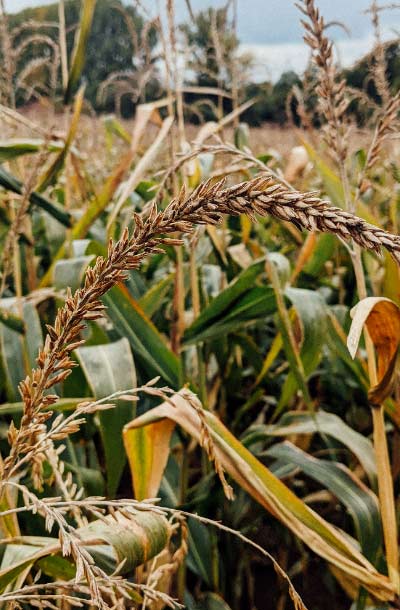
November 20, 2020
Agriculture
Here’s How Sustainable Farming Is Possible In Madagascar

Madagascar is an island nation in the Indian Ocean, which is one of the most biologically diverse areas in the world.
Agriculture is the backbone of the country’s economy, and the majority of the population relies on agriculture for income.
It lies on the latitude and longitude lines of twenty degrees South and forty-seven degrees east in the southern hemisphere, which makes the temperature suitable for farming throughout the year.
However, due to the mountainous terrain, only 5% of the land is used for agriculture.
A wide range of crops are grown in different regions, including rice, cassava, sweet potatoes, vegetables, maize, and beans.
Various crops like vanilla, cloves, cocoa, sugarcane, coffee, and cotton are exported to different parts of the world.
It is well known as the world’s leading vanilla producer and accounts for 80% of the world’s vanilla production.
Though the nation has abundant natural resources available, there are several challenges faced by the agricultural industry, farmers, and the authorities.
As mentioned before, there are several food crops like Maize and Groundnut which are produced in large quantities for domestic as well as international use.
This demand for food crops has put pressure to convert forests into farmlands and threaten the rich biodiversity of the place.
The rapid increase in human population has already resulted in severe deforestation in the region.
The slash-and-burn farming practice has plagued the country for many generations. Even today, the practice continues causing great damage to the environment.
It can be better understood as clearing forest areas to make way for farming as older fields stop supporting farming activities.
Furthermore, this leads to soil degradation and erosion. Soil fertility has greatly reduced as well.
This sometimes causes runoff to the water resources, which harms aquatic beings and affects the fishing industry.
Inadequate and irregular rainfall is a challenge as well. This often leads to loss of land for farming at any given time.
Several new techniques, like crop rotation and crop sequencing, are used in place of slash-and-burn farming.
The latest agricultural technologies are a difficult prospect because of the terrain and the cost.
Traditionally, agriculture in Madagascar follows old practices to grow food crops. Farming is generally limited to families.
The use of chemical fertilizers and pesticides is low or absent. Though the practice is appreciable, the resulting low yield is a problem.
The best example is the production of rice. As per estimates, rice is grown by more than 80% of households, but the sector’s annual growth rate has been only 1.5%.
Thus, there is an urgent need for innovative and efficient agriculture solutions that can boost productivity without harming the environment and lead to the development of the country and the people.
As mentioned before, Madagascar has exceptional potential for agricultural development due to the presence of abundant resources.
Organica Biotech is one of the leading companies developing agriculture solutions that encourage a sustainable future.
Our agriculture products are natural, safe, eco-friendly, and effective in boosting farming output.
The consortium of highly beneficial microbes is highly capable of adapting to different geo-climatic conditions.
Thus, these natural plant growth promoters can greatly help agriculture in Madagascar.
- Safeguards Crop protection
- Boosts plant production and Seed germination
- Improves soil fertility
- Enhances nutrient assimilation by crops
- Improves immunity
- Healthy ecological balance
- Boosts sustainable agriculture





